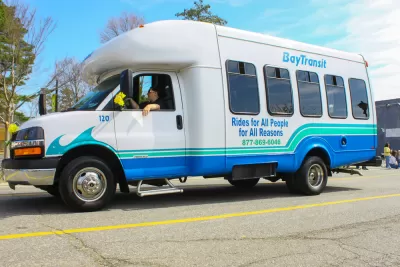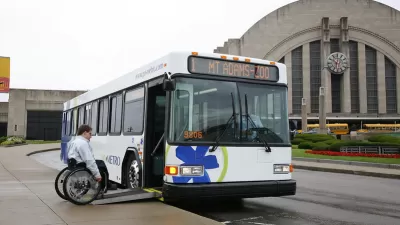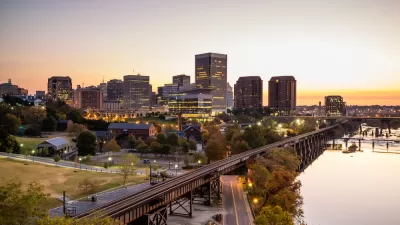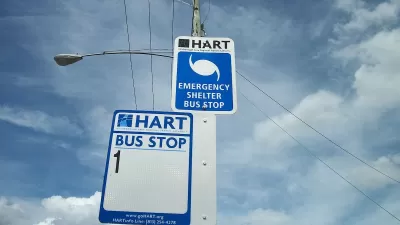State funding approved in early 2020 and Covid-related service changes are allowing multiple localities to consider a drastic move for public transit: permanent, fare-free bus service.

Wyatt Gordon reports from Virginia:
When the General Assembly created the Transit Rider Incentive Program (TRIP) as part of Gov. Ralph Northam’s 2020 transportation omnibus, the lion’s share of the funding was allocated to support new regional bus routes. With COVID’s cancellation of much commuter service across the commonwealth, those dollars are now being dedicated to TRIP’s secondary goal: fare free transit pilot projects.
In recent months, Virginia cities like Lynchburg, Roanoke, Alexandria, Richmond, Charlottesville, and Fairfax County have expressed support for fare-free transit service, and Gordon writes to speculate on the potential of permanent elimination of fares on bus systems in the state.
"Nearly every transit system in the commonwealth eliminated fares last year as a public health measure in response to COVID, but until recently none had announced intentions to make that move to protect riders and operators more permanent," according to Gordon.
One characteristic of transit in Virginia that Gordon notes as especially remarkable is the importance of bus transit in rural locations in the state. The TRIP bill will support fare-free programs in both urban and rural areas, according to Gordon. Gordon surveys the state and finds support for fare-free programs in cities on both ends of the urban and rural spectrum.
FULL STORY: Should Virginia bus systems go fare free forever?

Manufactured Crisis: Losing the Nation’s Largest Source of Unsubsidized Affordable Housing
Manufactured housing communities have long been an affordable housing option for millions of people living in the U.S., but that affordability is disappearing rapidly. How did we get here?

Americans May Be Stuck — But Why?
Americans are moving a lot less than they once did, and that is a problem. While Yoni Applebaum, in his highly-publicized article Stuck, gets the reasons badly wrong, it's still important to ask: why are we moving so much less than before?

Using Old Oil and Gas Wells for Green Energy Storage
Penn State researchers have found that repurposing abandoned oil and gas wells for geothermal-assisted compressed-air energy storage can boost efficiency, reduce environmental risks, and support clean energy and job transitions.

Updating LA’s Tree Rules Could Bring More Shade to Underserved Neighborhoods
A new USC study finds that relaxing Los Angeles’ outdated tree planting guidelines could significantly expand urban tree canopy and reduce shade disparities in lower-income neighborhoods, though infrastructure investments are also needed.

California's Canal Solar Projects Aim to Conserve Resources and Expand Clean Energy
California’s Project Nexus has begun generating electricity from solar panels installed over irrigation canals, with researchers and state agencies exploring statewide expansion to conserve water and boost clean energy production.

HHS Staff Cuts Gut Energy Assistance Program
The full staff of a federal program that distributes heating and cooling assistance for low-income families was laid off, jeopardizing the program’s operations.
Urban Design for Planners 1: Software Tools
This six-course series explores essential urban design concepts using open source software and equips planners with the tools they need to participate fully in the urban design process.
Planning for Universal Design
Learn the tools for implementing Universal Design in planning regulations.
Heyer Gruel & Associates PA
City of Moreno Valley
Institute for Housing and Urban Development Studies (IHS)
City of Grandview
Harvard GSD Executive Education
Salt Lake City
NYU Wagner Graduate School of Public Service
City of Cambridge, Maryland





























